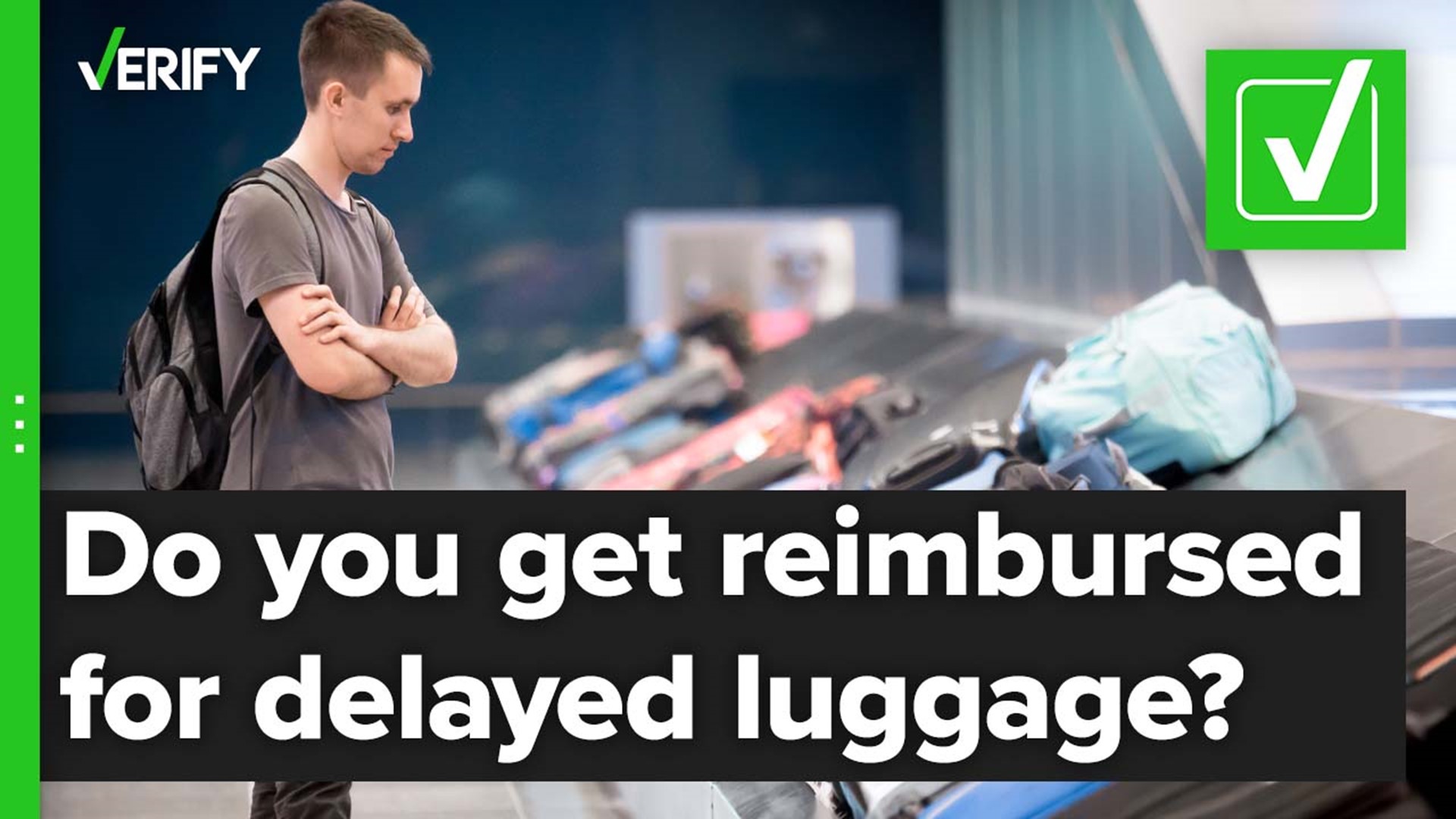A TikTok video claiming people can get reimbursed up to $3,800 by airlines for luggage delays went viral with over 480,000 likes. The person who made the TikTok acts out a scenario in which a person’s luggage would be delayed in getting to their destination, so the passenger demands reimbursement because they had to buy shoes, makeup and more to cover for their belongings.
The TikTok implied that the airline would have to reimburse any item the customer had to buy because their luggage was delayed.
THE QUESTION
Do airlines have to reimburse you for items you buy as a result of delayed luggage?
THE SOURCES
SITA, an IT company for the airline industry
Peter Greenberg, travel editor for CBS News
THE ANSWER
Airlines do have to reimburse you for items you need to buy as a result of delayed luggage — but it’s not a free shopping spree. Eligible items have to be “reasonable, verifiable, and actual incidental expenses” for the airline to compensate you.
WHAT WE FOUND
The Department of Transportation (DOT) says airlines are responsible for compensating passengers for “reasonable, verifiable, and actual incidental expenses” that they incur while their bags are delayed. These reimbursements are subject to the maximum liability limits.
For domestic flights, the DOT says airlines are liable for up to $3,800 for lost, damaged or delayed bags. The DOT says International flights are subject to the Montreal Convention, which established international airline liabilities, which sets airlines’ baggage liability at about $1,780. Airlines are free to compensate passengers with more money, they just aren’t legally obligated to.
“You are allowed to go out and buy a reasonable amount of toiletries — maybe a shirt, some underwear, some basics, toothpaste — to get you through until that bag is delivered to you,” said Peter Greenberg, travel editor for CBS News. “Now you can't go out and buy three tons of caviar, and you can't go out and buy a mink stole.”
But remember, that’s the maximum allowance. Though the DOT says airlines cannot set arbitrary daily limits for interim expenses, that doesn’t mean an airline has to reimburse a passenger for everything they buy up to $3,800. “Reasonable” expenses typically don’t cost much.
“If they delay your bags for 24 hours, you're not buying $3,800 worth of clothing,” Greenberg said. “You're buying a fair and reasonable amount of clothing to get you through the next 24 hours, and the same thing applies to toothpaste and toiletries and socks.”
So how much might passengers actually get?
Delta Airlines says “reasonable expenses are generally determined as $50 USD per day for the first 5 days that the bag is delayed,” but notes this figure is not a daily limit or cap and higher expenses “will be handled on an individual basis up to the limit of liability.”
That also doesn’t mean airlines will refuse to reimburse passengers for more expensive items. “Reasonable” can have different meanings based on the nature of the trip.
For an example, one blogger shared stories in which she was reimbursed more than $1,000 on two separate occasions after her bags were delayed on short snowboarding trips. She flew with the purpose of snowboarding, didn’t have access to the snowboarding clothes she packed and would have to come back home in a few days. So snowboarding clothes were classified as “reasonable” even though they ended up being more expensive than typical day-to-day costs.
Neither United Airlines nor American Airlines define “reasonable” expenses in their baggage policies. A spokesperson for United said in an email that “the claim process is handled on an individualized case-by-case basis."
All airlines require receipts before reimbursing a passenger, and if the airline loses the luggage altogether, most companies will deduct these reimbursements from the compensation they give the passenger for the lost luggage.
Passenger airlines don’t often delay or lose luggage. The Bureau of Transportation Statistics reported airlines mishandled 4.88 bags out of every 1,000 in the first nine months of 2021. That’s slightly higher than the rate in 2020, which was 4.28 bags for every 1,000. SITA, an IT company for the airline industry, reported 69% of the mishandled bags in 2020 were delayed, and only 4% of all mishandled bags were lost entirely.
After a certain number of days, an airline will declare a delayed bag “lost.” The DOT says most airlines will declare a bag lost between five and 14 days after a flight. Once a bag is considered lost, the airline is responsible for compensating the passenger for the bag’s contents.

